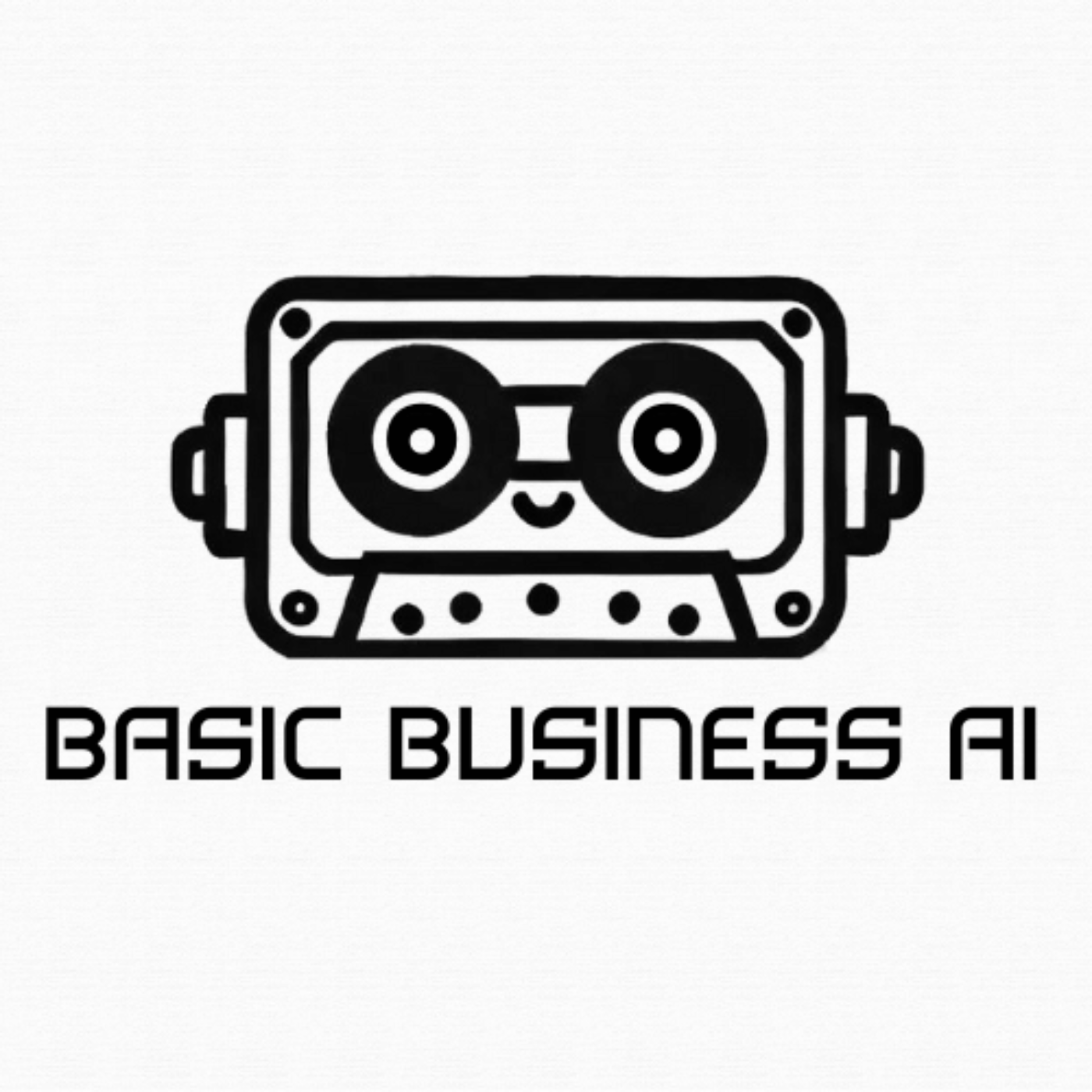Episode Transcript
[00:00:00] Speaker A: Welcome to Basic Business AI, a podcast dedicated to simple AI strategies for businesses who don't want to get an advanced tech degree or hire some marketing bro. I'm your host, Ana Gonzalez, and you can find me on social media. At Anabotprime, we bring on regular business owners like you and me to discuss practical strategies, ideas and perspectives about AI without getting too far into the weeds of the tech Bb. AI is sponsored by Annabot. Did you know companies that respond to customer inquiries in less than 1 minute have a 400% higher chance of closing the deal. Our AI powered assistants have an average response time of just 9 seconds, meaning you can close more sales without generating more leads. No tech skills are needed and you can get started in less than five minutes. Go to Annabudz AI to learn more. Once more, that's Anabuts AI. Today's guest is Scott Shang. Scott, for 25 years in the mortgage industry, has been at the forefront of technology and innovation. Specializing in consumer direct marketing, he mastered making complicated topics easy to understand. Since December 2022, he has focused his attentions, experience, imagination and effort on AI. Scott now splits his time between providing AI consulting to small and medium sized businesses and RBI, which offers customized AI analysis solutions including swot analysis, market analysis, competitor analysis and database analysis. So Scott, welcome to basic business AI.
[00:01:40] Speaker B: Thank you, Anna, I appreciate it. Happy to be here.
[00:01:43] Speaker A: I'm glad to have you. So, from your perspective, how is AI reshaping the future of your industry?
[00:01:50] Speaker B: Oh boy. I think it's reshaping. I think it's reshaping all industries. And I don't think we really have a choice.
Even if we as individuals, either business owners or consumers, don't necessarily engage in AI. All of the products and services that we use every day are integrating AI functionality into it.
Important that we know that it's there and that we try to understand it to some extent and understand what it means. Because I think that sometimes people think that AI is something that you go to the store and you buy AI off the shelf, but it's really more like electricity and it's like an energy source. Then it powers our ideas and our imagination in a way that we've never been able to do before.
So that I'm, I don't think we have a choice.
[00:02:54] Speaker A: No, we don't. It's here to stay.
[00:02:56] Speaker B: Yeah, yeah. And you know, I did, I spent a long time in the mortgage industry as starting this year, I sold my business in the mortgage industry and I've committed 100% to helping people understand AI. And I think when I was using it, probably one of its most powerful things is to help us write better.
And what I found is that it actually helps you to communicate your ideas better, because in order to get good output out of aih, you have to be able to clearly communicate what your, what your ideas are in order to get good, good output from it. Because when I first started using it, I think I used it like everybody else. I used it like Google, and I typed in a question and it gave me like a vague answer because that's not really its superpower. It can give you answers, but it taught me to better communicate my messaging. And so I think a byproduct of us learning how to use aih is it helps us to better formulate and communicate our ideas and express our ideas. If you can express it to AI, it'll reflect it back to you. And if you say, I would buy from me, so would your customers.
[00:04:23] Speaker A: Yes. You know, like, like everything in life, the quality of your input dictates the quality of the output you get. Yes, I, it reminded me what you were saying. You reminded me of when I started also using AI. Like, I think the first thing of AI I used was chat shippt. And I just put write me an email about whatever, and it wrote me a terrible email. So I was like, oh, this doesn't work. But then I realized that, okay, so this is the kind of email I wanted to write. How can I get it to do it? So it started to get me thinking of how to word it. And let me tell you something, I ramble a lot and I go to rabbit holes. And it has helped me to stay focused.
[00:05:09] Speaker B: That's great. Yeah, no, I mean, it makes you say, okay, who are you writing this email to? What kind of tone do you want this to be?
What do you want them to get out of this email? And I think sometimes as business owners and marketers, we, we just put it out there. And I almost think AI is a correction for the decades of social media and texting that we've been doing that provides no context and just short blurbs without really being able to communicate big ideas. This is kind of the opposite of that. And I think it's going to start to reprogram people, to start thinking about, there's a real audience on the other side of this. It's not just a list of friends that may or may not see the message that you throw out into the Internets. You know, it's, uh, it, it's, it's a communication tool.
[00:06:09] Speaker A: I love what you're saying. Yes, we have. We've been. I think that we have been programmed and trained in the last year, in the past few decades to text and just to be very short and non contextual. And now it's changing. Oh, my gosh. Thank you for this. And now it's changing to, okay, you need to be clear. You need to be direct, and you need to be complete. And in order for it to be effective, your communication to be effective, so that you can have the result that you need.
[00:06:41] Speaker B: Yeah. You know, there's another approach to AI that I'm trying to get. I'm trying to get some traction on this, and I want to eliminate the term artificial intelligence, because I think artificial intelligence does not accurately describe what this tool is and what the state of it is. I like to use augmented intelligence because it is an assistant. It helps us to amplify and clarify our ideas and our thoughts.
When you say artificial intelligence, there's this sort of. This implication of it. Of it being autonomous and it being a robot that you ask, and it knows all of the answers. And I think if we approach it that way, you're going to be disappointed. But if you look at it as something that is.
Is the most. The smartest, most professional person in any topic that you would want to learn about, you can have an in depth conversation with it about. About that, and it will help you modify your perspective and give you more depth and value to your thoughts so that you can communicate those thoughts and those ideas better. So augmented intelligence, not artificial, because there's nothing artificial about the experience of really using AI to its fullest extent of what it's capable of.
[00:08:07] Speaker A: I love it. And also, I think that that's why calling it artificial intelligence makes it look scary. I think that's part of why people are so scared of it. But you're right. AI is here to augment us. It's here to help us augment our powers. For us to be superhumans.
[00:08:28] Speaker B: I would dare to say artificial intelligence has been evil since 1968, when 2001 Space Odyssey came out and HaL 9000 rebelled.
[00:08:39] Speaker A: Oh, my gosh. Yes.
[00:08:40] Speaker B: Right? So it's. So for 50 years, that's what we've been thinking.
The irony is not lost on me that Arthur C. Clarke is the one that said that any advanced technology is indistinguishable from magic, and that's what it feels like. So, yeah, you're right. It's interesting.
Artificial intelligence has always kind of been presented to us as it's going to take over humanity. You think of hell and you think of the Terminator and things like that, and that's just not what it is.
[00:09:21] Speaker A: Exactly. Oh, I love this. So, Scott, tell us about who you serve and how people can reach out to you.
[00:09:27] Speaker B: Yeah, so I actually, I work with Perry Marshall. He's a business consultant out of Chicago. And I did, earlier this year, I did a four part course with him called AI simplified.
I am not a programmer. I don't know how to code, and I'm not an engineer.
I explain like I did in the mortgage industry, complicated topics, and I make it easy for people to understand.
And I'm starting a new program with Perry Marshall starting in September, where every two weeks we're going to do a two hour call. The first 30 minutes is going to talk about what's new, what's going on in AI, because that's the biggest complaint people have is things happen so quick, they just don't know what they're supposed to be paying attention to, and they always feel like they're behind. And then for the next 90 minutes of each call, we're going to solve people's problems in real time. So they're submitting questions and what they're stuck on and how they're trying to figure it out. And we're going to walk them through how to do that in real time for the benefit of the entire audience because they get to see how everybody is thinking about it. And then we can kind of reframe that and help them understand the technology, how to approach it, and then how to apply specific solutions to it.
[00:10:52] Speaker A: Awesome. And how can people reach out to you?
[00:10:56] Speaker B: Or you can find me on LinkedIn and my name's Scott Shang, or you can Google Perry Marshall AI simplified and you'll find our courses and I'll provide you with a link to the courses. We're going to give this a one year test, and people can join and leave anytime they want. They could come get their problem solved and then they can. And then they can unsubscribe. It's that easy. It's a conversation, and it's an ongoing discussion for small businesses and business owners to help understand AI.
[00:11:32] Speaker A: Great. So we're going to wrap from here. Thanks for your guest, Scott Shanghai, for joining us for a practical conversation about AI and its potential for business. You can learn more about what he's doing by visiting his LinkedIn, Scott Shank or Google Perry Marshall AI simplified. If you run a business of any size and you have some ideas or strategies around the topic of AI, we'd love to have you on a future episode as well. We interview business owners of all levels of experience and exposure to AI so we can represent all voices, especially the 90% of us who are curious about AI but not trying to be tech geniuses. Apply for a future episode by going to basicbusinessai.com. and one more time, if you want to install a sales and support team for less than 10% of the cost of a single employee, get yourself an anabot. Learn more at anabots AI. See you next time on basic business AI. Oh, and by the way, if you like this episode, tell your friends. See you later.



